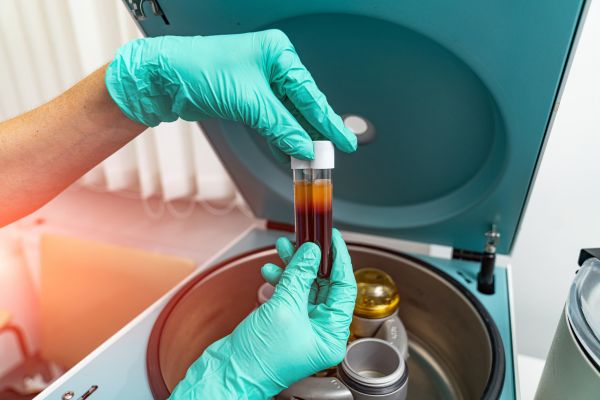For the first time in a generation, the UK is again utilising blood plasma donation to manufacture vital medicines. This landmark achievement marks a significant step towards self-sufficiency in plasma-derived therapies, offering renewed hope to patients with complex conditions.
Rebuilding a National Capability
For years, the UK relied heavily on imported plasma products. This reliance created vulnerabilities in the supply chain, particularly during global health crises. The resurgence of domestic plasma donation and manufacturing represents a strategic move to reinforce national resilience and ensure a reliable source of these life-saving medicines.

The Power of Plasma
Blood plasma – the pale yellow liquid component of blood – contains essential proteins and antibodies crucial for treating various conditions. These therapies derived from plasma are used to manage:
- Immunodeficiency disorders: Patients with weakened immune systems rely on plasma products to replace missing antibodies and fight infections.
- Bleeding disorders: Individuals with conditions like haemophilia require clotting factors derived from plasma to prevent excessive bleeding.
- Autoimmune diseases: Plasma therapies can help modulate the immune system in patients with autoimmune conditions like Guillain-Barré syndrome and Kawasaki disease.
- Burns and trauma: Plasma replaces lost fluids and proteins in patients with severe burns or trauma.
- Prevention of Rh Disease in Newborns: Rh disease is prevented by anti-D injections for mums. Anti-D shots protect newborns from Rh disease.
- Treatment of Liver Diseases: Certain liver diseases can impair the production of essential proteins found in plasma.
A Collaborative Effort
The collection of blood plasma from donors within the country has been revitalised, and manufacturing is the result of a collaborative effort involving:
- NHS Blood and Transplant (NHSBT): The blood plasma donation is collected and processed by the NHSBT, which is vital in collecting blood.
- Bio Products Laboratory (BPL): BPL, a UK-based manufacturer, transforms blood plasma donation into life-saving medicines.
- Donors: The generosity of blood plasma donors is the cornerstone of this initiative.
The Donation Process
Plasmapheresis, commonly known as plasma donation, is a safe procedure that separates plasma from other blood components using special equipment. After extraction, the remaining components are returned to the donor along with saline solution. Donated plasma, which contains essential proteins, antibodies, and clotting factors, is used to treat various medical conditions and manufacture life-saving medications.
The process is generally well-tolerated, and donors can typically donate plasma more frequently than whole blood. This increased frequency allows for a steady supply of plasma to meet the growing demand for these therapies.
Benefits of Domestic Production
The resumption of domestic plasma manufacturing offers several advantages:
- Increased Self-Sufficiency: Reducing reliance on imported plasma products strengthens the UK’s healthcare security.
- Improved Supply Chain Resilience: A domestic supply chain is less vulnerable to global disruptions and ensures a more consistent availability of these vital medicines.
- Enhanced Patient Access: Increased production can improve access to plasma-derived therapies for patients who need them.
- Economic Benefits: Domestic manufacturing creates jobs and stimulates the UK’s biopharmaceutical industry.
The Call for More Donors
To ensure the success of this initiative, the NHSBT is actively encouraging more people to become plasma donors. The demand for plasma-derived therapies is growing, and a steady supply of donations is essential to meet this need.
Healthcare Professionals’ Role
Healthcare professionals play a critical part in supporting this initiative by:
- Raising awareness: Educating patients and the public about the importance of plasma donation.
- Encouraging donation: Promoting plasma donation among eligible individuals.
- Understanding the benefits: Staying informed about the latest advancements in plasma-derived therapies and their clinical applications.
Total Assist: Supporting Healthcare Professionals in Blood Services
Total Assist recognises the vital role of blood services in providing life-saving treatments. We are committed to supporting healthcare professionals in this essential area by:
- Offering diverse opportunities: Providing a range of locum and permanent positions in blood transfusion services, donor centres, and related specialties.
- Facilitating professional development: Supporting ongoing professional development through access to training, resources, and networking opportunities.
Hope for the Future
The reestablishment of domestic plasma donation and manufacturing represents a significant achievement for the UK’s healthcare system. By working together, donors, healthcare professionals, and industry partners can ensure a sustainable and reliable supply of these life-saving medicines for generations to come.

